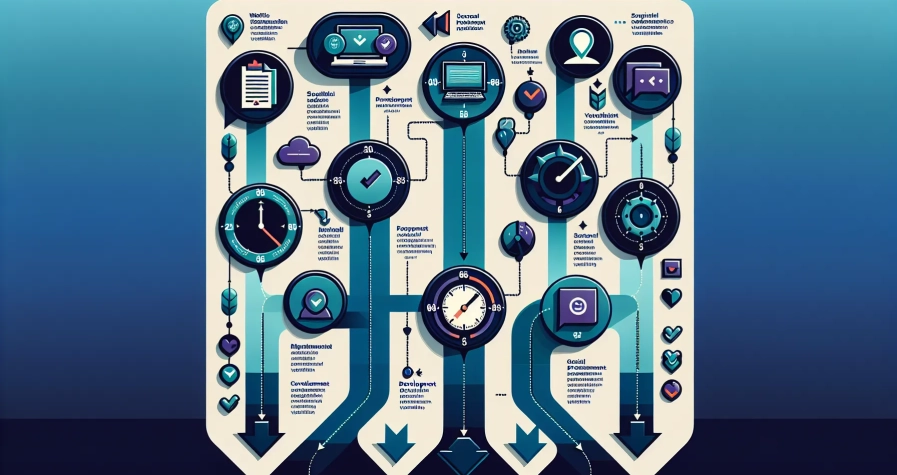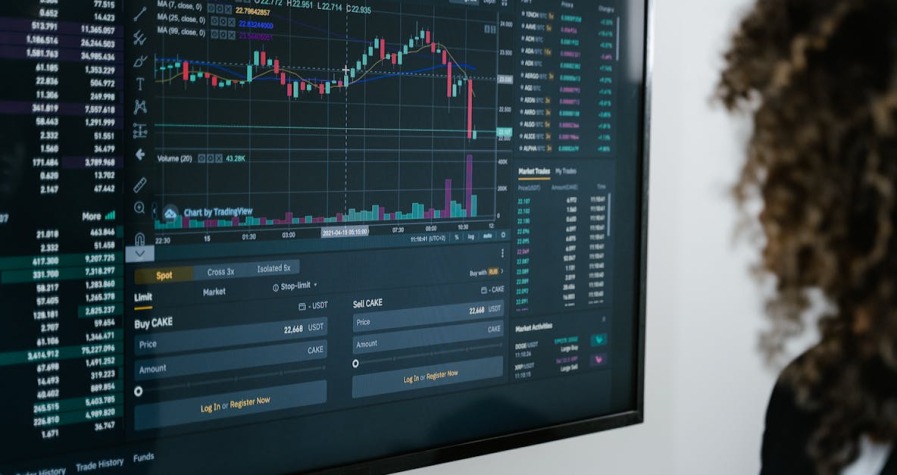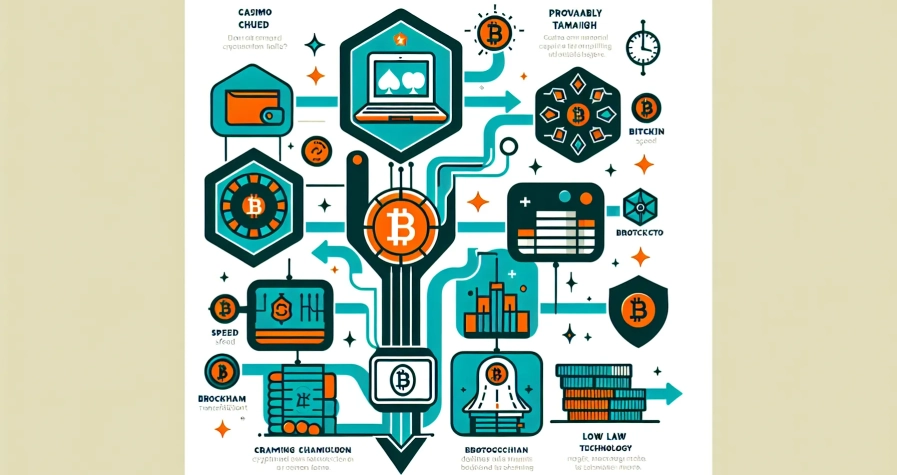You’ve probably heard a lot about crypto over the past few years,wild price swings, hype cycles, and headlines that range from “Bitcoin millionaires” to “crypto crashes.” Maybe you’ve thought about dipping your toes in, or perhaps you dismissed it all as noise. But here’s the thing: while the buzz might have quieted down a bit, now is actually a compelling time to learn about cryptocurrency and blockchain technology. Not necessarily to chase the next meme coin, but to understand a fundamental shift happening in finance, technology, and how we think about ownership and value.
Whether you’re curious about investing, considering a career pivot, or simply want to stay ahead of the curve in an increasingly digital world, crypto literacy isn’t just for techies or traders anymore. It’s becoming essential knowledge. The landscape has matured significantly,regulations are clearer, mainstream adoption is surging, and practical use cases are popping up everywhere from your local concert venue to Fortune 500 boardrooms.
In this text, we’ll walk through eight solid reasons why learning about crypto right now makes sense, backed by real-world trends and data. You don’t need to quit your day job or bet your savings,just a willingness to understand what’s shaping tomorrow’s economy.
Key Takeaways
- Cryptocurrency ownership in the U.S. has doubled since 2021, with about 28% of adults now holding digital assets, making learning about crypto essential for mainstream financial literacy.
- Evolving regulatory clarity and the approval of spot Bitcoin ETFs have made crypto entry safer, with clearer legal frameworks reducing risks and increasing consumer protections.
- Blockchain career opportunities are expanding beyond finance into healthcare, supply chain, and entertainment, offering high-demand roles with competitive salaries even for non-technical professionals.
- DeFi platforms are reshaping traditional finance by providing access to lending, borrowing, and trading services without intermediaries, often with lower costs and higher yields.
- Understanding crypto and blockchain technology now is crucial for future-proofing your financial and tech literacy as these systems become foundational to tomorrow’s digital economy.
- High-quality educational resources on cryptocurrency are more accessible than ever, with free courses from leading universities and platforms making it easy to start learning at your own pace.
1. Mainstream Adoption Is Accelerating
Crypto isn’t some fringe experiment anymore. In 2025, about 28% of U.S. adults,roughly 65 million Americans,own cryptocurrency, effectively doubling the ownership rate from 2021. That’s not a niche: that’s a sizable chunk of the population integrating digital assets into their financial lives.
Why does this matter for you? Because learning about crypto now means you’re joining a movement that’s already reached critical mass. You’re not an early adopter taking a wild gamble,you’re getting up to speed with something your neighbors, colleagues, and even your parents might already be exploring.
Institutional Investment and Corporate Integration
One of the biggest drivers of this mainstream wave is institutional money. Hedge funds, pension funds, and asset managers are allocating portions of their portfolios to Bitcoin, Ethereum, and other digital assets. Major corporations,from tech giants to payment processors,are integrating blockchain into their operations, accepting crypto payments, or building on decentralized platforms.
When institutions commit, they bring legitimacy, infrastructure, and talent. That translates into better security, more reliable platforms, and smoother user experiences for everyone,including you.
Government Recognition and Digital Currency Initiatives
Governments worldwide are no longer ignoring crypto: they’re actively engaging with it. Central banks are piloting or launching Central Bank Digital Currencies (CBDCs), and regulatory bodies are crafting frameworks to govern digital assets. In the U.S., visible political support,such as policy shifts during recent administrations,has given the industry more credibility. Nearly half of crypto-familiar Americans believe this kind of backing will drive even wider adoption.
In short, crypto is moving from the periphery to the centre. Learning about it now positions you to understand,and potentially benefit from,this global financial evolution.
2. Evolving Regulatory Clarity Makes Entry Safer
Remember the Wild West days of crypto? Sketchy exchanges, hacks every other week, and zero consumer protections? Those concerns haven’t vanished entirely, but the landscape has changed dramatically. Regulatory clarity is increasing worldwide, and that’s great news if you’re thinking about learning or investing.
Clearer Legal Frameworks Worldwide
In the U.S., Europe, and across Asia-Pacific, governments have introduced or refined rules governing cryptocurrency exchanges, token issuances, and taxation. The approval of spot Bitcoin ETFs in major markets is a huge milestone,it signals that regulators are willing to let traditional financial institutions offer crypto products under established oversight.
What does this mean for you? Fewer scams, better protection, and more confidence. You can now access crypto through regulated brokerages, custodians, and investment funds that follow strict compliance standards. Educational resources also benefit from this clarity, as reputable institutions are more willing to offer courses and certifications when the legal ground is stable.
Safer doesn’t mean risk-free,crypto is still volatile,but the regulatory tide has definitely turned in favor of legitimacy. If you’ve been sitting on the fence waiting for things to “settle down,” well, they have,at least more than ever before.
3. Career Opportunities in Blockchain Are Expanding
Maybe you’re not looking to invest: maybe you’re looking for your next career move. Good news: blockchain and crypto-related jobs are booming, and they’re not all for coders or traders.
High-Demand Roles Beyond Trading
Blockchain technology is spreading into industries far beyond finance,think healthcare, supply chain, gaming, entertainment, and legal services. That means demand for developers, security specialists, compliance officers, product managers, UX designers, and marketers who understand decentralized systems.
Even if you don’t have a technical background, roles in community management, regulatory affairs, and business development are plentiful. Companies need people who can bridge the gap between complex tech and everyday users, which is exactly where non-technical crypto literacy shines.
Competitive Salaries and Remote Work Options
Blockchain roles often come with above-average salaries and flexible work arrangements. Many companies in the space are fully remote or distributed globally, giving you access to opportunities regardless of where you live. Learning about crypto and blockchain fundamentals now can open doors to these lucrative, future-forward careers,even if your résumé doesn’t scream “tech wizard.”
The bottom line: understanding crypto isn’t just a financial play: it’s a career investment in one of the fastest-growing sectors of the global economy.
4. Educational Resources Are More Accessible Than Ever
A few years ago, learning about crypto meant wading through dense whitepapers, sketchy YouTube channels, and forums full of jargon. Today? High-quality, beginner-friendly education is everywhere, often for free or at low cost.
Free Courses and Certifications
Leading universities like MIT, Stanford, and Princeton offer free or affordable online courses covering blockchain fundamentals, smart contracts, and cryptocurrency economics. Platforms like Coursera, Udemy, edX, and Khan Academy have entire modules dedicated to digital assets. Industry groups and crypto exchanges also provide free certification programs to help you build verifiable skills.
Whether you want a broad overview or a deep jump into Ethereum development, you can find a course tailored to your level and interests. Many are self-paced, so you can learn on your schedule,no need to quit your job or upend your life.
The barrier to entry has never been lower. You don’t need a computer science degree or a finance background: you just need curiosity and an internet connection. And because these resources are so accessible, there’s really no excuse not to start learning,especially when that knowledge could unlock investment opportunities, career paths, or simply help you navigate an increasingly digital world.
5. DeFi Is Reshaping Traditional Finance
If you’ve ever been frustrated by bank fees, slow wire transfers, or loan applications that take weeks, Decentralized Finance (DeFi) might sound like a dream come true. And it’s not just hype,DeFi platforms are already processing billions of dollars in transactions, giving users direct access to financial services without the traditional middlemen.
Access to Financial Services Without Intermediaries
DeFi lets you borrow, lend, trade, and earn interest on your assets,all through smart contracts on blockchain networks like Ethereum. No credit checks, no bankers, no paperwork. You interact directly with protocols, often earning higher yields than traditional savings accounts or accessing loans without a lengthy approval process.
This is especially transformative for people in regions with limited banking infrastructure. But even if you have access to traditional finance, DeFi offers more control, transparency, and often lower costs.
Learning about DeFi now means understanding how financial services are being reimagined from the ground up. You’ll be better equipped to spot opportunities, avoid pitfalls, and make informed decisions about where to put your money,or how to build services that leverage these new rails. The financial system is evolving, and DeFi is a big part of that evolution.
6. NFTs and Digital Ownership Continue to Evolve
Yes, NFTs had their moment of hype,overpriced JPEGs and celebrity endorsements included. But if you wrote them off entirely, you might’ve missed the bigger story: NFTs are fundamentally changing how we think about ownership, provenance, and value in the digital age.
Beyond Art: Real-World Use Cases
NFTs (non-fungible tokens) are now being used for event ticketing (eliminating scalping and fraud), gaming (players truly own in-game items and can trade them), real estate (fractional ownership and transparent property records), and intellectual property (artists and creators can embed royalties directly into their work).
They’re also showing up in supply chains, medical records, and digital identity systems. The core idea,verifiable, unique ownership on a blockchain,has applications far beyond collectible art.
Understanding NFTs means understanding a new model of digital property. Whether you’re a creator looking to monetize your work, a gamer curious about play-to-earn models, or a business professional exploring blockchain use cases, NFT literacy is increasingly relevant. The technology is evolving rapidly, and getting a handle on it now keeps you ahead of the curve.
7. Portfolio Diversification and Investment Strategy
Let’s talk money. Even if you’re a conservative investor, crypto can play a role in a diversified portfolio,and more people are recognizing that.
Crypto as Part of a Balanced Portfolio
The majority of crypto holders now view digital assets as a complement to traditional investments like stocks and bonds, not a replacement. On average, crypto owners hold two or more different cryptocurrencies to spread risk. Institutional investors,pension funds, endowments, and family offices,are also increasing their allocations to digital assets as a hedge against inflation and currency devaluation.
Crypto’s low correlation with traditional markets (at least historically) can offer diversification benefits, though it comes with higher volatility. The key is understanding how much exposure makes sense for your risk tolerance and time horizon.
Learning about crypto now equips you to make informed decisions rather than FOMOing in during a bull run or panic-selling during a dip. You’ll understand the difference between Bitcoin, Ethereum, stablecoins, and altcoins. You’ll know what drives price movements and how to evaluate projects. That knowledge is worth more than any hot tip you’ll find on social media.
8. Future-Proofing Your Financial and Tech Literacy
Here’s the big-picture reason to learn about crypto: the world is going digital, and blockchain technology is a foundational layer of that transformation. Whether or not Bitcoin hits a new all-time high next year, the underlying tech isn’t going anywhere.
Understanding the Technology Behind Tomorrow’s Economy
Blockchain is powering Web3, the next iteration of the internet where users own their data and digital identities. It’s enabling smart contracts that automate agreements without intermediaries. It’s creating decentralized autonomous organizations (DAOs) where communities govern projects collectively.
Even traditional industries,banking, logistics, healthcare, entertainment,are exploring or adopting blockchain solutions. Learning about crypto and distributed ledger technology now means you’re building literacy in a skill set that will matter for decades.
Think of it like learning to use the internet in the 1990s. Not everyone needed to code HTML, but understanding how the web worked gave people a massive advantage in the job market, in investing, and in navigating cultural shifts. Crypto and blockchain are similar. You don’t need to become a developer, but understanding the basics positions you to adapt, innovate, and thrive in an increasingly digital economy.
Future-proofing isn’t about predicting the next hot coin,it’s about equipping yourself with the knowledge to make smart decisions, seize opportunities, and stay relevant as technology reshapes finance, work, and society.
Conclusion
So, is now a good time to learn about crypto? Absolutely. Mainstream adoption is surging, regulations are clarifying, career opportunities are expanding, and educational resources are more accessible than ever. Whether you’re interested in DeFi, NFTs, portfolio diversification, or simply understanding the tech behind tomorrow’s economy, there’s never been a better moment to get started.
You don’t have to invest a single dollar to benefit from crypto literacy. Just understanding how blockchain works, what DeFi offers, or how NFTs are being used can give you a serious edge,in your career, your finances, and your ability to navigate the digital future.
The landscape has matured. The Wild West phase is fading, replaced by institutions, regulations, and real-world applications. And the best part? You can start learning today, at your own pace, often for free. Don’t wait for the next hype cycle to wish you’d paid attention earlier. Immerse now, learn the fundamentals, and position yourself to make informed, confident decisions in a rapidly evolving world.
Frequently Asked Questions
Why is now a good time to learn about crypto?
Now is ideal because mainstream adoption has surged, with 28% of U.S. adults owning cryptocurrency. Regulatory frameworks have matured, educational resources are widely accessible, and crypto literacy is becoming essential for understanding tomorrow’s digital economy and career opportunities.
How has regulatory clarity improved crypto safety for beginners?
Governments worldwide have introduced clearer legal frameworks governing exchanges, token issuances, and taxation. The approval of spot Bitcoin ETFs and stricter compliance standards mean fewer scams, better consumer protections, and access to crypto through regulated, legitimate platforms.
What career opportunities exist in blockchain besides trading?
Blockchain careers span far beyond trading, including roles in healthcare, supply chain, gaming, and legal services. High-demand positions include developers, compliance officers, product managers, UX designers, community managers, and business development professionals—many offering competitive salaries and remote work.
What is DeFi and why does it matter?
Decentralized Finance (DeFi) enables borrowing, lending, trading, and earning interest without traditional banks or intermediaries. Smart contracts on blockchains like Ethereum provide direct access to financial services with more control, transparency, lower costs, and higher potential yields than traditional banking.
Can crypto be part of a traditional investment portfolio?
Yes, most crypto holders view digital assets as a complement to stocks and bonds, not a replacement. Institutional investors are allocating portions of portfolios to crypto as a hedge against inflation, offering diversification benefits despite higher volatility when balanced with risk tolerance.
Are NFTs still relevant beyond the initial hype?
Absolutely. NFTs now power event ticketing, gaming ownership, fractional real estate, supply chain verification, and digital identity systems. They represent verifiable digital ownership on blockchains, with practical applications far beyond collectible art that continue to evolve and expand across industries.








